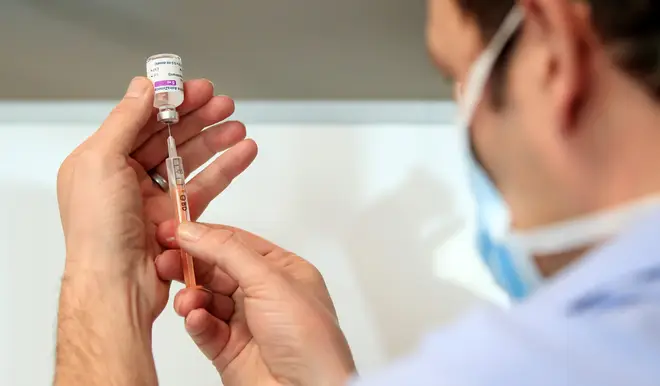
James O'Brien 10am - 1pm
17 February 2021, 19:25

The NHS is fighting an epidemic of misinformation about Covid-19 vaccines, England's top GP has said.
Dr Nikki Kanani, GP and medical director of primary care for NHS England and NHS Improvement, has set out the health service's "blueprint" to tackle vaccine hesitancy.
She said that the health service is "fighting dual epidemics: Covid and misinformation, particularly around the vaccine".
Read more: Boris Johnson confirms England’s lockdown will be lifted in 'stages'
In an opinion piece, published by the i newspaper, Dr Kanani added that misinformation shouldn't be permitted to spread "faster than the virus itself, warning that scare stories and myths "cost lives".
The plans include building "trust and confidence" though work in local communities and with faith leaders.

Boris Johnson: The UK's lockdown exit will be "cautious and prudent"
Health workers also have an important role to play, she said.
Meanwhile those who have been vaccinated should also encourage their loved ones to have the jab when offered,
Dr Kanani said that vaccine hesitancy is "often rooted in historical issues and a wider distrust of authority" so more needs to be done to appropriately address these concerns.
Meanwhile the NHS is working with social media firms and the Government to "stop the flow of misleading content at the source", she said.
Vaccine information is also being tailored to specific communities and being translated into 20 different languages.
"As we reach the next stage of the biggest vaccination programme in NHS history, we are faced with fighting dual epidemics: Covid and misinformation, particularly around the vaccine," Dr Kanani wrote.
"With more than 13 million people in England choosing to get their vaccine already, we must continue to encourage and persuade people who remain unsure that getting this protection is vital."

Raab: No jab no job rule is 'up to employers'
"We must keep spreading the word to those next in line that this vaccine is safe and effective for all, regardless of ethnicity, race, religion or background."
She added: "There is evidence that people from ethnically diverse backgrounds are most likely to be hesitant about getting the vaccine, despite being disproportionately affected by Covid.
"It's vital that we give these communities the support they need to get the vaccine when invited to do so, building both trust and confidence."
Dr Kanani continued: "Hesitancy is often rooted in historical issues and a wider distrust of authority, so we need to move past the pain and trauma that generations of people may feel about institutions, by recognising concerns and addressing them appropriately.
"Faith and other community leaders are of course crucial to this, but those who work in healthcare are often role models and decision-makers on health within their families.
"So it's crucial that staff in all roles and from all backgrounds know this vaccine is safe and effective for all.
"Misinformation about the vaccine must not be permitted to transmit and spread through communities faster than the virus itself. Scare stories and myths online cost lives.
"And that's why the NHS is doing our bit to fight back."
She added: "Over the coming months I want to harness the full force and power of personal, trusted relationships, by supporting people who have already been vaccinated to encourage their friends and family to do likewise.
"My colleagues and I will continue to rebut fake health advice, like the inaccurate claim that (the) vaccine has an impact on fertility, or that you have to prove your address to get your dose.
"As well as tackling hesitancy head-on, we are working with social media firms and the Government to report inaccurate and harmful content and stop the flow of misleading content at source."
Dr Kanani will be speaking with the Prince of Wales at the British Asian Trust about the issue on Thursday.